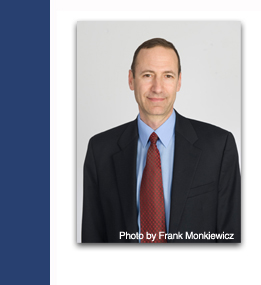Why did you write UNHINGED?
After 15 years of practicing psychiatry I noticed that psychiatrists prescribe too many drugs, and worse, know almost nothing about how the drugs work or the underlying causes of mental disorders. Meanwhile, there is a growing body of research showing how effective therapy techniques can be for depression and anxiety, and most psychiatrists ignore these techniques. Our over-emphasis on drugs is encouraged by the pharmaceutical industry, and many of the most esteemed psychiatrists have allowed themselves to be bought out by drug companies. We have become “unhinged” from our true mission, which is to help patients get better using whatever techniques work, whether that is medication, talk therapy, exercise, or self-help groups. Instead, we have become hypnotized by the notion that we are always on the verge of finding the one pill or the one gene that is going to allow patients to solve all their problems.
You say that psychiatrists have been seduced by “neurobabble.” What do you mean?
We like to see ourselves as neuroscientists, rationally manipulating levels of neurotransmitters like serotonin in order to get patients better. But the fact is that we have no clear evidence that chemical imbalances are at the root of any mental disorder. We know that some of the medications we prescribe, like Zoloft or Celexa, affect serotonin among other chemicals. But we don’t know if changing levels of serotonin is the actual curative mechanism. Nonetheless, we give patients elaborate explanations of how the drugs work chemically. It makes us feel more scientific, and it gives our patients a feeling of confidence in us, but it’s little more than made up neurobabble.
Did you use to speak for pharmaceutical companies?
Yes, in 2002 I signed up for the Speakers Bureau for Wyeth and a couple of other companies. I was paid $750 to have lunch with other doctors and give them a little advertising pitch about an antidepressant called Effexor. I eventually quit, because I realized that the money was a powerful incentive to say only positive things about the drug and to downplay negative side effects, and I felt it was immoral to deceive other doctors.
Do psychiatrists still give these kinds of talks for drug companies?
Yes. Doctors in all specialties hire themselves out this way, but psychiatrists consistently lead the pack of all medical specialties. In fact, Eli Lilly recently started publishing an online list of all the doctors they have hired to give talks for them and how much they were paid. In the first three months of 2009, the company paid US doctors a total of $22 million to give talks to other doctors to promote their various drugs. Of the 22 highest earners (those who made between $50,000 and $75,000), 15 were psychiatrists.
Can you give a couple of examples?
One psychiatrist, Dr. Charles Nemeroff, whose nickname was the “boss of bosses” because he was at one time the most powerful and influential psychiatrist in the US, was the chairman of the psychiatry department at Emory University. He was a fixture on the hired gun Speakers Bureau circuit for years, and consulted or spoke for 21 different drug or device companies. In 2008, a senate investigation led by Senator Chuck Grassley discovered that Dr. Nemeroff had made at least $2.8 million in extra income from drug companies from 2000 to 2007. But he didn’t report $1.2 million of that as required by his university. He earned $960,000 from one particular company, GlaxoSmithKline over 7 years, but only reported $35,000 on his disclosure forms. He was eventually forced to resign as chair of the department of psychiatry at Emory.
But shouldn’t companies be able to educate doctors about their drugs?
Sure, and they do so all the time in medical journal ads and through drug rep visits. While this “education” is always slanted in favor of their product, as long as it is clear that it is advertising, doctors know to take it with a grain of salt. But when eminent academics start to give talks for drug companies, the line between advertising and science is blurred. Doctors do not know who they can trust anymore. This is the most insidious result of the use of doctors to help with drug marketing—a general loss of trust in the profession.

